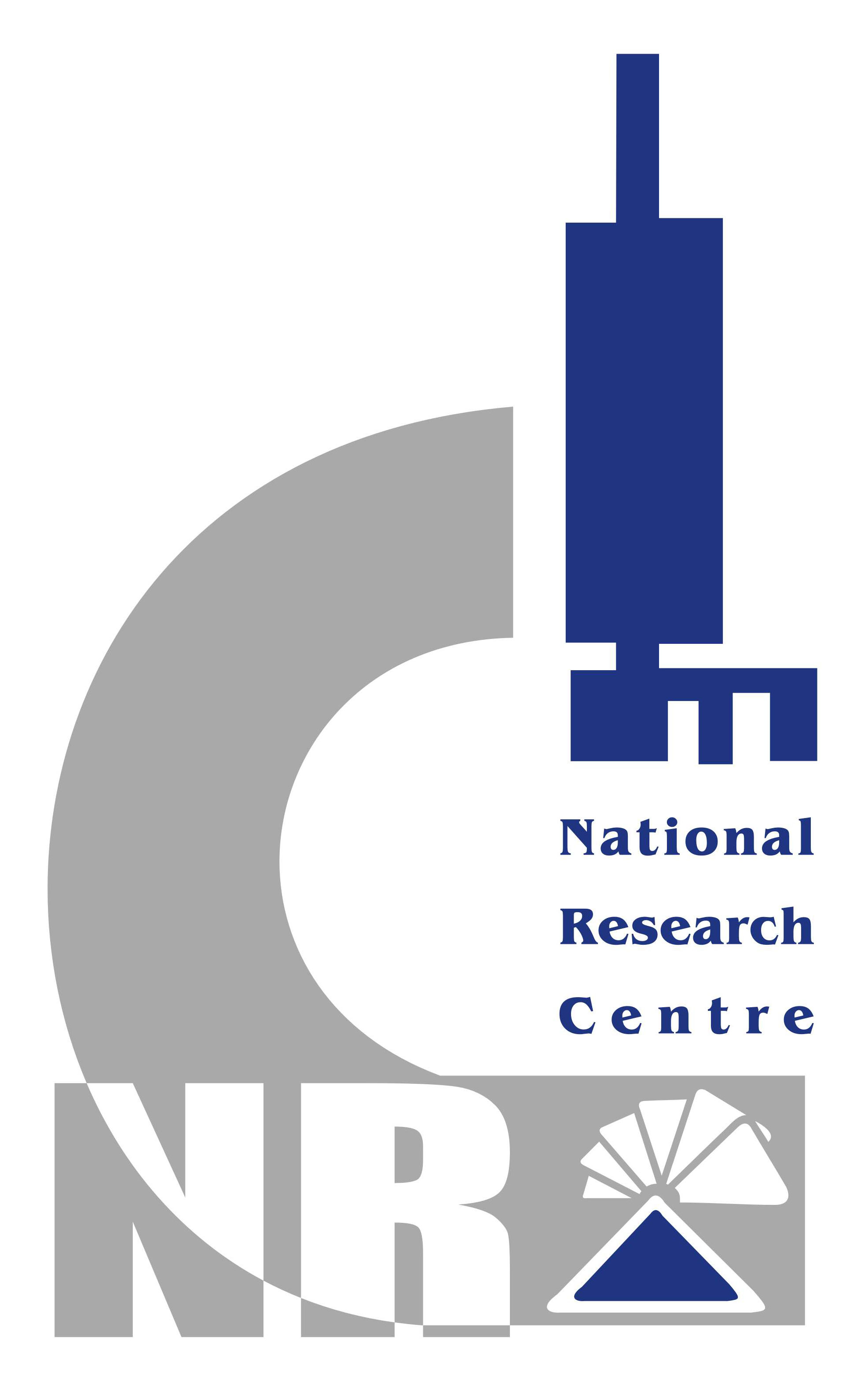- THE COMMISSION
- SECRETARIAT
- CONSULTATIVE COMMITEE
- NETWORK OF CENTRES
- PROGRAMMES
- COMSATS’ Programmes
- COMSATS’ Ongoing Projects
- Skill Development Programme
- International Thematic Research Groups
- Science Diplomacy
- National/International Events
- Scientific Activities Sponsorship
- Scholarships and Fellowships
- Expert Exchange Programme
- Distinguished Professorship Scheme
- COMSATS’ Panel of Experts on ST&I Policy
- Centre for Climate and Sustainability
- COMSATS Joint Centre for Industrial Biotechnology (CCIB)
- COMSATS and Corona
- PUBLICATIONS
- ARCHIVES
- ANNOUNCEMENTS
- NOTICES
NRC-Egypt
National Research Centre (NRC), Egypt
 Introduction:
Introduction:
NRC was established in 1956 to foster basic and applied scientific research, particularly in industry, agriculture, public health and other sectors of national economy. NRC has a research staff of 4,847 scientists and is headed by a president with two vice presidents designated for research and technical affairs.
Focus Areas:
The focus areas of NRC are: Renewable Energy; Water; Nanotechnology and New Materials; Biotechnology; Agriculture; Waste Management; Stem Cells; HCV; Obesity; Cancer; Diabetes; Human Genetics; Functional Foods; and Polymers.
Laboratories:
There are various laboratories under the following 14 Research Divisions of NRC: Agriculture and Biology Research Division; Chemical Industries Research Division; Engineering Research Division; Environmental Sciences Research Division; Food Industry and Nutrition Division; Genetic Engineering and Biotechnology Division; Inorganic Chemical Industries and Mineral Resources Division; Medical Sciences Division; Pharmaceutical Industries Division; Physics Division; Textile Industries Division; Veterinary Research Division; Human Genetics & Genome Researches; and Oral & Dental Research Division.
NRC also has five Centres of Excellence in Advanced Sciences; Medical Sciences; Advances in the Diagnosis Management and Research of Genetics Diseases; Influenza-A Virus Control: Surveillance, Vaccine Preparation and Drug Discovery; and Innovative Textile Technology.
Expertise:
NRC has expertise in the following areas: Health (Stem Cells Diabetes, and Breast and Liver Cancer); Solar Cells (Design, Manufacturing and Applications); Nanotechnology Applications (Biosensor based on Metal and Semiconductor Nanoparticles for Virus, Bacteria and DNA Detection; Bioactivity of Ceramic/Polymers Nanocomposite for Biomedical Applications; Application of Carbon Nanotubes in Medicine and Environment, etc.); Renewable Energy (Wind, Solar, Biofuels); Industrial Research (Purification of Industrials Water from Heavy Metals and other Contaminants, Functional Food from Traditional Experience to Modern Production, Functional Polymers for various applications); and Agriculture (Abiotoc Stress, Biocontrol, Oil-producing Crops, etc.). NRC has acquired the ISO 9001 certificate in April 2016. NRC has offered 5 post-doctoral fellowships for COMSATS Member States.
Looking for:
NRC is looking for research collaborations in the fields of Inorganic Chemistry, Organic Chemistry, and Textile Industry.
Collaboration with other Centres
The National Research Centre (NRC) is collaborating with five Centres of Excellence; namely Industrial Technology Institute (ITI), Sri Lanka; Bangladesh Council for Scientific and Industrial Research (BCSIR), Bangladesh; Industrial Research and Consultancy Centre (IRCC), Sudan; COMSATS University Islamabad (CUI), Pakistan, and University Cheikh Anta Diop (UCAD), Senegal, under the project title: ‘Improvement of Wheat Quality and Productivity using both Traditional and Modern Techniques’. Furthermore, during COMSATS’ 21st Coordinating Council meeting in Almaty-Kazakhstan (April 2018), NRC and Al-Farabi Kazakh National University (KazNU), Kazakhstan pledged to collaborate in the fields of mutual interests. In this respect, NRC signed MoUs / Intent of Cooperation with BCSIR-Bangladesh, CUI-Pakistan, and ICCES-China, in order to achieve common objectives.
NRC, also, offered 05 short-term (1-2 months) fellowships for PhD students from COMSATS Member States in the following areas: (i) textile processing; (ii) plant biotechnology; (iii) polymers; (iv) bioactive materials; and (v) nanotechnology in engineering.
Web entries
- The 20th Meeting of COMSATS Coordinating Council (14-15 May 2017, Cairo, Egypt)
- 4th International Workshop and Conference on Nano-materials and Nano-devices
- COMSATS-ISESCO Workshop on Repair and Maintenance of Scientific Equipment held at National Research Centre, Egypt
- Executive Director COMSATS Visits Syria and Egypt
